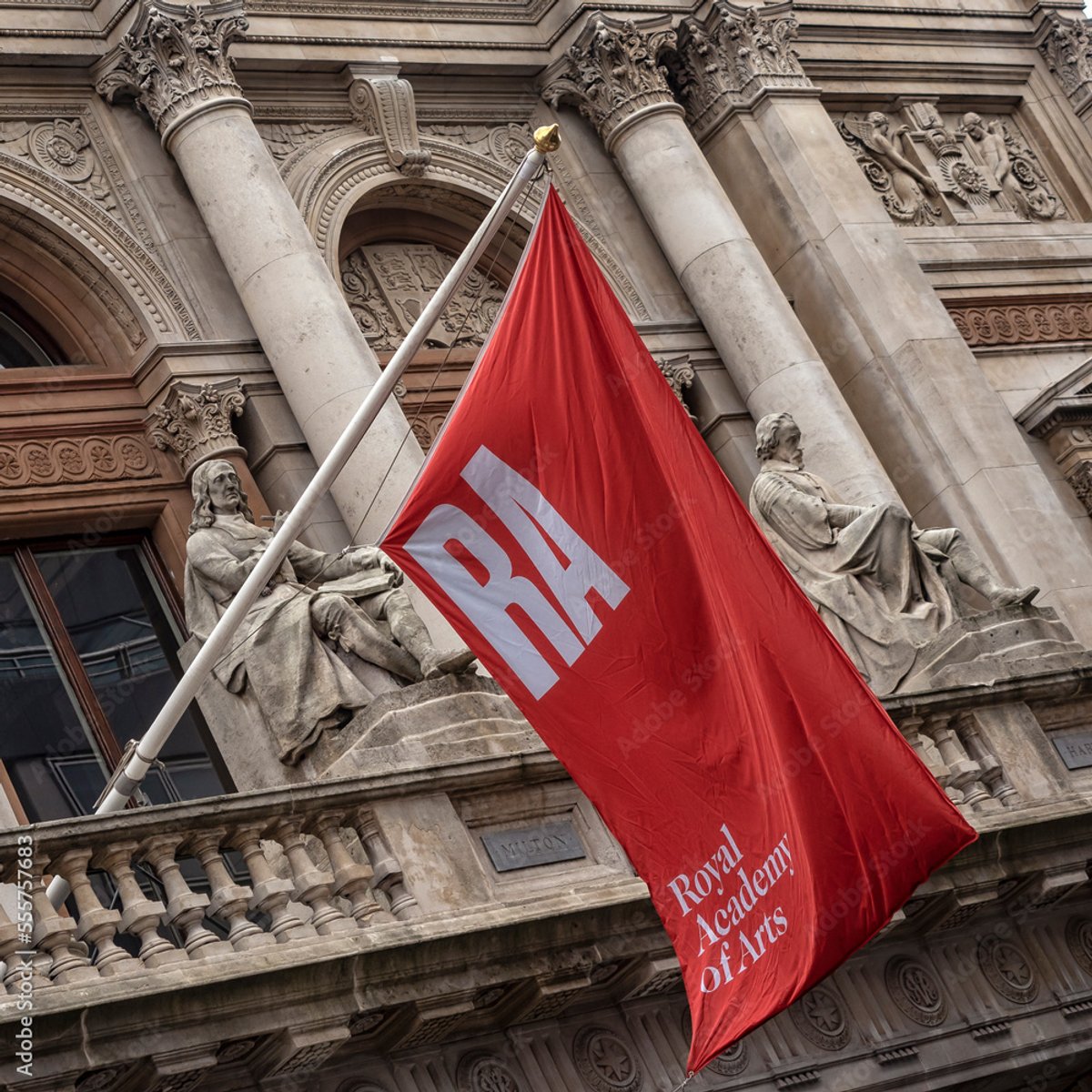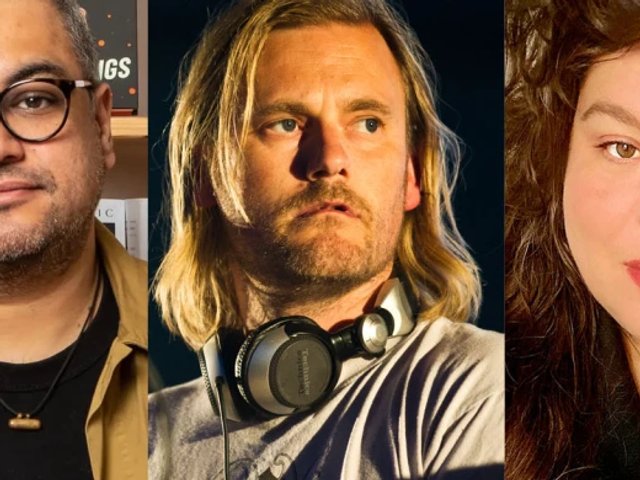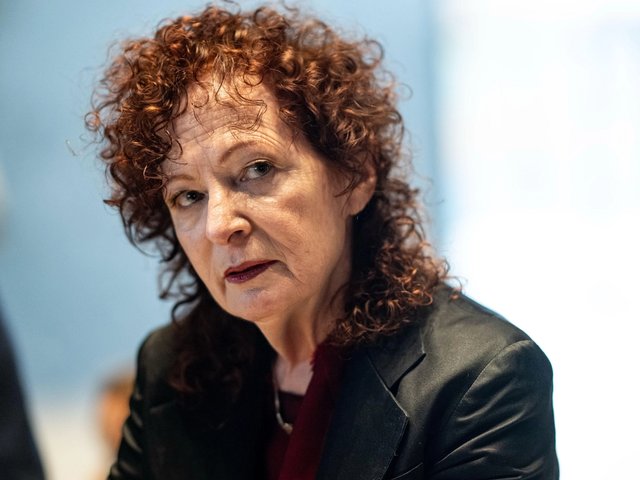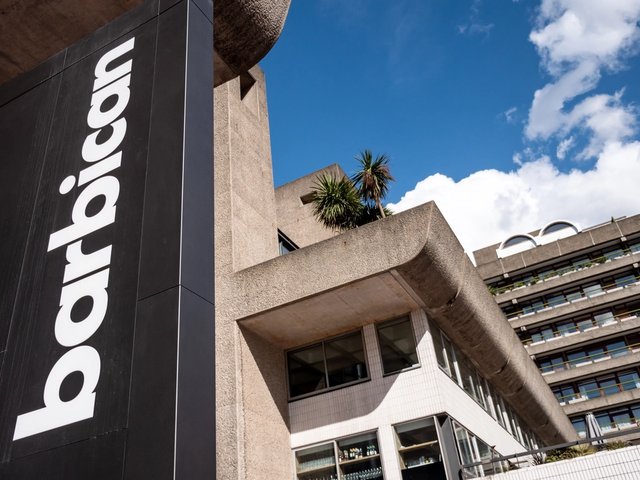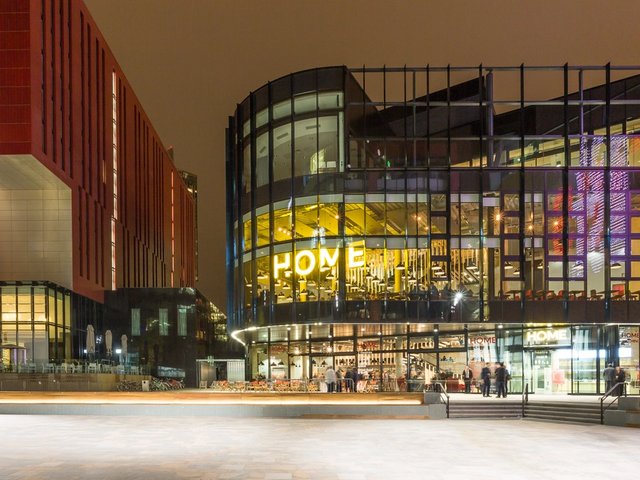More than 700 artists and public figures have signed an open letter accusing London’s Royal Academy of Arts (RA) of “anti-Palestinian censorship” over its decision to remove two works from its Young Artists’ Summer Show earlier this month.
Published earlier this week (29 July) by Artists for Palestine UK and signed by the Turner nominee Rosalind Nashashibi, the photographer Nan Goldin and the musician Brian Eno among others, the letter describes the action as “shameful”.
The works were removed following concerns raised by the Board of Deputies of British Jews, which described them as containing “anti-semitic tropes and messaging”. The works comprise a photograph of a protester holding a sign reading “Jews say stop genocide on Palestinians not in our name”, and a drawing by a 16-year-old artist showing women embracing—seemingly in fear—beneath a swastika and a Buddha-like figure.
The Board of Deputies of British Jews questioned the judgement of the RA in displaying these “highly charged and controversial messages” with “no attempt to present any context”.
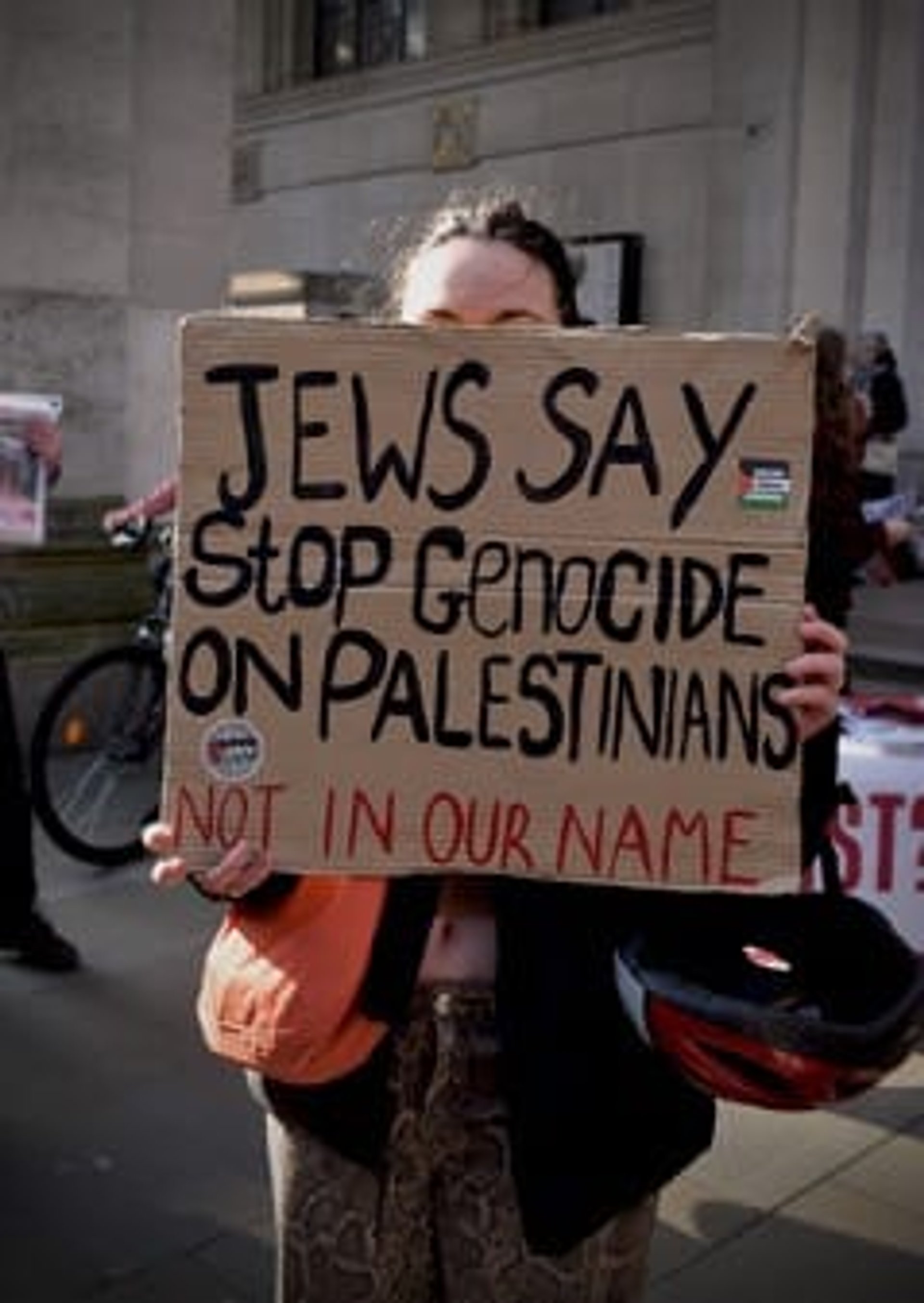
One of two works removed by the RA from its Young Artists’ Summer Show earlier this month, both of which were described as containing “antisemitic tropes and messaging”
Courtesy of Artists for Palestine UK
However, the new letter, signed by more than 100 Jewish creatives, says that in taking them down the gallery has “colluded with the erasure of Jewish contribution to solidarity with Palestinians”.
“By failing to stand up to deplorable bullying and ludicrous accusations against young artists, the Royal Academy is in breach of its ethical responsibilities and duty of care. This needs urgent repair,” said a spokesperson for Artists for Palestine UK.
It continues: “far from protecting Jews, the RA is lending support to a racist, anti-Palestinian campaign that aims to silence expressions of support for Palestinian people".
Alongside the open letter, the activist organisation Palestinian Solidarity Campaign UK (PCS) has asked its 300,000 supporters to send a letter via email to the chief executive of the Royal Academy, informing him of their concerns and outrage regarding the organisation's "censorship". This letter reads: “In silencing solidarity for Palestine, the Royal Academy is complicit in shielding the state of Israel from accountability for its actions”, and adds that it should not “be regarded as inherently illegitimate for artists to draw comparisons between one genocide and others in history”.
Earlier in July, when the works were being removed, an RA spokesperson told The Art Newspaper that the institution had reviewed the matter “carefully” and that it recognised “an exhibition for young people and artwork by young people is not an appropriate environment for volatile public discourse”.
However, the open letter says: “British arts institutions have the ethical, historical and legal duty to uphold freedom of expression and anti-discrimination. Those that fail to meet these obligations have, rightly, faced peaceful grassroots measures including artist-led boycotts in order to defend the democratic functioning of our cultural spaces.
“The Royal Academy must explain the measures it will take to repair the harm it has done by stigmatising the work of the young artists it removed from the Young Artists Summer Show and by dehumanising Palestinians.”
The RA said in a statement that it "should not have chosen to display two works that relate to the Israel/Palestine conflict, and are subject to varying interpretation, in the Young Artists’ Summer Show. We recognised that an exhibition for young people and children aged 4 to 19, without opportunity for real context and discussion, is not an appropriate environment to invite volatile public discourse, at the RA and online via social media.
"We have a duty of care to the artists we exhibit and the visitors to our galleries, particularly our youngest. We made the decision to remove these artworks on Monday 15 July. We made this decision based on our duty of care and independently of any correspondence from external organisations.
"The RA followed its internal procedures for managing this issue. We shared our decision with the schools who had submitted the work of the respective young artists, and they supported the RA’s course of action. It was not a conclusion we came to lightly, and we considered the implications carefully, but safeguarding the young people involved in our activities is paramount.
"We apologise for any hurt and distress this has caused to our young artists and to our visitors. We will learn from this experience and we are reviewing our processes, so we can continue to celebrate the creativity of young artists in a safe and responsible way."
The Board of Deputies of British Jews has been contacted for comment.
UPDATE 1 August: This article was updated with a statement from the RA.


